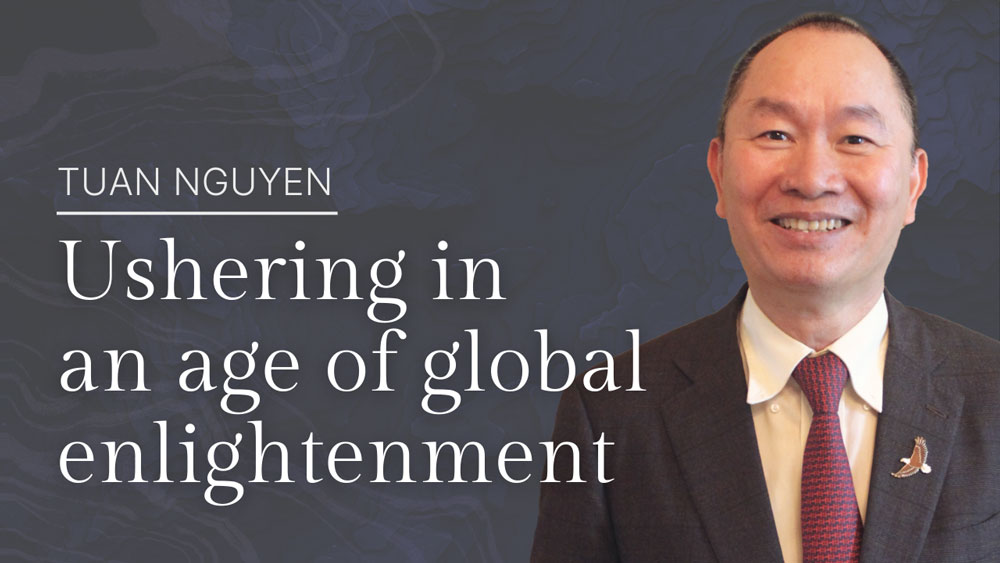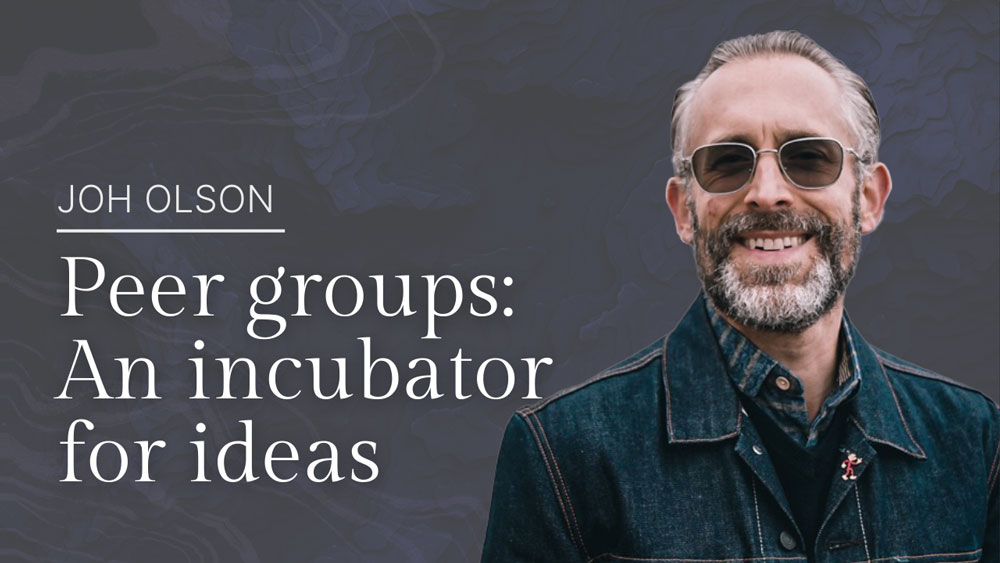Ayusha Mahajan
7
min read
Beyond Buzzwords: The True Essence of Innovation
Colin McWhinnie
CEO & Co-Founder | Canada StartUp, Co-Founder | Sales Primer
Key themes
Colin McWhinnie knows how innovative ideas become successful businesses. Founder and CEO of Canada Startup, a consulting and coaching business that guides startup founders through the exacting process of product development, customer discovery and market entry, Colin turns powerful ideas into groundbreaking solutions through test-driven development.
For 25 years, Colin has ignited success in over 500 entrepreneurs and their companies by unveiling two critical truths. First, breaking down silos and empowering a company's employees by making them aware of their impact unlocks a new level of potential. Second, a revolutionary product starts with small, incremental innovations that can be tested, refined and implemented.
Colin emphasizes the power of intrapreneurship as a driving force for innovation within organizations. Freedom to innovate fosters a culture of celebration and support for creative ideas and empowers employees to infuse creativity into their daily work. Companies can release their full potential and adapt to the ever-changing business landscape by tapping into its more significant purpose.
Innovation Expert
Coming out of university, Colin McWhinnie's worst fear was leading a professionally monotonous life. In 2008, he became the Founder and CEO of Canada StartUp and has been bringing relief, satisfaction, and thrill into the world for 15 years, one startup at a time. Canada StartUp is a business and consulting firm that has guided over 500 companies across the invisible bridge separating idea and profit. Colin enjoys working with founders to push them out of their comfort zone and give their product ideas a broader impact. At the heart of every startup is innovation. But after working with innovative ideas for nearly two decades, Colin has noticed that most people need help figuring out what to do after they come up with a great idea.
“Many people think innovation is about idea generation. True innovation is an idea that is implemented and provides value.”
Innovation is not merely imagination—it is also implementation. In Colin’s extensive experience, idea generation is the easier half of the process. Most innovators like incubating their product ideas, keeping them safe from external criticism until they are perfect. Bringing the concept out of the warm womb of potential and into the variable-strewn real world is the step most entrepreneurs find it difficult to take. But Colin knows that entrepreneurship is a verb. It requires doing. And he plays a huge part in pulling founders out of a brainstorming paralysis and bringing products into the market for testing and feedback so that they're one step closer to delivering meaningful value. In addition to seeing product ideas executed practically, Colin finds the confidence and communication skills that this intense journey equips the founders with to be extremely rewarding.
Colin is also the co-founder of Sales Primer, a professional training and coaching business that teaches business founders and sales leaders how to grow their revenues. In addition to that, he extends his expertise as an entrepreneur in residence to several accelerators that support startups. Colin's post-graduation nightmare didn't come close to being true.
Wordly Impact
When it comes to innovation, Colin has seen it all—from the dot com era to the artificial intelligence paradigm shift. His strategy for transforming innovative ideas into successful businesses has been to support entrepreneurs through practical tools and mentoring support. This includes taking the idea to the minimum viable product (MVP) stage, presenting it to potential customers, communicating with them and receiving candid feedback about the product’s perceived value, and assisting them with the modification or pivoting process if necessary. The highs and lows of this journey can be stomach-churning, especially if you’re attached to your product idea and are new to entrepreneurship. Colin, therefore, plays an indispensable role in mentoring and supporting his clients as they bring their products to market.
Colin finds profound satisfaction in partnering with entrepreneurs who are driven to positively impact society and the environment. A memorable case he recalls is that of the Snug Vest, invented by Lisa Fraser. Her inflatable vest provides deep-pressure therapy for children with autism, sensory processing disorder, or anxiety. When Colin and Lisa started talking to parents during the customer discovery process, which involves fine-tuning a product based on customer feedback, Colin was struck by how innovation can affect various stakeholders. Not only was Lisa easing the troubles of the children, but she was also adding relief to their families.
“It strikes you, right, that story? You want to roll up your sleeves and give extra effort supporting that solution having a real impact on people’s lives, rather than one solely about making more money for everybody.”
Inventive breakthroughs call for comfort in the realm of creativity. This can only be fostered if the entrepreneur's team is receptive to fresh ideas and perspectives. The question then arises: how does one accomplish the seemingly formidable task of transforming an organization's culture?
Shifting Company Culture
According to Colin, it all starts with the individual. Over time, education, social pressure, and society’s aversion to change beat the creativity out of a person. The crucial first step is making people realize they’re holding themselves back, suppressing their creative potential. Once this self-imposed barrier is identified, it's possible to tap into their latent creativity by highlighting their integral role within a more extensive network. Individuals need to comprehend the impact of their day-to-day responsibilities on their peers, customers, stakeholders, and the overall organization. They are more than just an isolated entity working at a desk; they are part of a larger whole. This realization can empower people to develop creative ways to further contribute to the company, opening up new avenues for innovation and, ultimately, revolutionizing the entire organizational culture. Colin has witnessed this directly.
“It's incredible what happens. One organization said, ‘The winds of change are blowing through our department now.’ And I love to hear that because you can feel it walking into a workplace…you can hear a buzz, unlike everybody working in their little silo.”
Another insight that unlocks a person's capacity for meaningful participation is the understanding that not all innovation must result in a monumental change. Many groundbreaking innovations come in the form of minor yet beneficial modifications that can be implemented swiftly. These are the minor but impactful tweaks that significantly streamline the broader system. Once individuals grasp this, they're free from the perceived obligation to produce the next revolutionary idea. Instead, they acknowledge their realistic ability to contribute to an idea. As they grow comfortable with the extent of their impact, that's when the true transformation begins. Measurable indicators of the idea's success also help lay a strategic, purpose-driven path.

The Evolution of Innovation
Having observed the ever-changing trends in today's entrepreneurial landscape, Colin notes a shift toward the understanding that innovation and communication go hand in hand. Entrepreneurs are now keen on gauging consumer interest before investing significant resources into product development. Although it can be appealing to develop a groundbreaking idea to fill a market void, it's crucial to recognize that even potentially transformative ideas can falter if they're too far ahead of their time. Furthermore, Colin underscores the enduring importance of hard work in entrepreneurship. Cutting corners can jeopardize the solid foundation that's pivotal for business success.
“One of the most difficult things in the world is understanding that even though your product might be better than what is in current use, if the market isn't ready for it or does not have the incentive to change, you're going to have a long road ahead of you.”
In the pursuit of bringing transformative product ideas to life, Colin advocates for an incremental approach. He suggests starting with a product that demands less commitment from the customer. You can introduce more substantial innovations once your company has gained a firm footing. This strategy avoids overwhelming the customer with drastic changes all at once, something most customers dislike.
“The thinking was, ‘Well, I can solve many of their problems. Why don't I put everything in front of them and suggest we do it all at once? Why wouldn't they want that?’ The problem is a big change and a bigger price tag. And you're often pushing the customer away because it's too big of a decision to make, especially if they haven’t worked with you before."
Intrapreneurship and Surviving the Paradigm Shift
Aside from collaborating with nascent businesses, Canada StartUp also engages in substantial partnerships with public organizations and municipalities, paving the way for collective transformation. Colin has noted a rising trend among these entities: the embrace of transformational leadership and the formation of internal innovation hubs—these vibrant teams function beyond bureaucratic restrictions, nurturing a space where ingenuity thrives. Canada StartUp cultivates this innovative mindset by teaching staff to weave creativity into their daily work. The organization cultivates a more intrapreneurial environment by fostering a culture that regularly celebrates innovation.
The rate of change today is accelerating at an unprecedented pace, and having witnessed the trends of recent decades, Colin observes that the newest landslide of change, artificial intelligence, is a paradigm shift. He has noticed it being used by almost all of Canada StartUp’s clients to some degree, either for internal use or by adapting their technology. AI's formidable role in driving innovation is evident, especially in data analysis, with the COVID pandemic vaccine development being a prime example.
“I think that the hype is real. And I think when you start seeing the heads of organizations leading AI technology development come out and say, ‘We need to be very careful here,’—I think we have to listen to that.”
In today's business landscape, survival hinges on being lean, agile, consistently reliable, and swiftly reactive. The recent pandemic served as a stress test, revealing companies' ability to pivot promptly and seize opportunities from shifting customer needs. In Colin's compelling perspective, the fulcrum of innovation lies in empowering company founders and enabling front-line teams to breathe life into new ideas. In essence, the democratization of innovation within the organization emerges as a fundamental driver of success.
Because what is innovation if not implemented ideation?
Conclusion
In the dynamic world of modern business, the term 'innovation' is often reduced to a buzzword linked with simple idea generation. However, Colin McWhinnie, Founder and CEO of Canada StartUp, urges us to broaden this perspective and appreciate the often-neglected aspect of innovation: the execution phase. Colin, a seasoned expert in innovation and entrepreneurship with over 500 startups under his guidance, emphasizes the significance of each individual's impact within an organization as a catalyst for cultivating an internal culture of innovation. He espouses the view that innovation isn't just about fleeting flashes of genius but necessitates a comprehensive organizational culture shift. Organizations can tap into a rich reservoir of innovative potential by making employees conscious of their integral role and the far-reaching effects of their contributions. As such, Colin's work has brought startups' visions to fruition and nurtured his passion for the dynamism and unpredictability of the business landscape.



